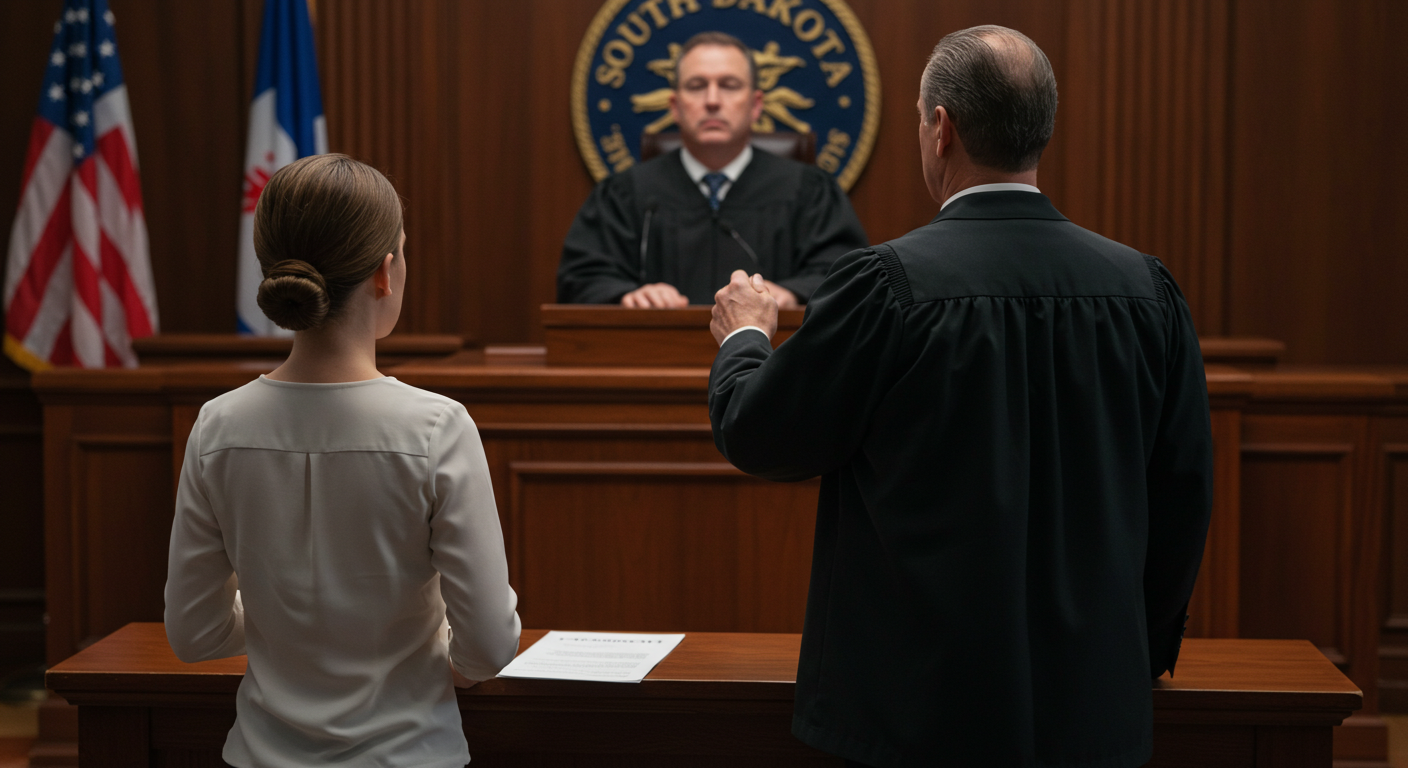Key Takeaways:
- Bail is not always guaranteed in South Dakota, and a judge determines the amount.
- Different types of bonds exist, each with its own set of requirements and processes.
- Failing to appear in court can lead to forfeiture of the bond and further legal complications.
- A knowledgeable bail bondsman can assist in navigating the complexities of the bail process.
- Understanding your rights and options regarding bail is crucial for a successful defense.
After being arrested, a person can post bail to wait for their court trial at home. If not, they have to wait in jail. Because criminal trials can be weeks or months from your arraignment, it’s not ideal for anyone to sit in jail waiting to go to trial.
But bail in South Dakota is not a guarantee, and the judge who sees you in your first court appearance will decide the amount. Knowing your rights to bail and bond in South Dakota can help you advocate for yourself in court — and a criminal defense attorney can help.
In this guide, Alvine Law Firm explains how bail works in South Dakota, as well as the different types of bonds and what happens if you fail to appear in court.
Bail in South Dakota: What to Expect
A bail bond is a cash, property or surety given to the court for a person’s release from jail (Codified Law 58-22-1). If you are unable to post the cash amount yourself, you can hire a professional bondsman to post it on your behalf.
Bail bondsmans are individuals who are registered with the South Dakota Department of Insurance, and they can pledge cash or surety on behalf of a defendant. If you hire a bondsman, you will pay a certain amount of your total bail amount in exchange for the rest of your bail.
When you pay a bondsman, they are taking financial responsibility for your appearance in court. If you do not appear at your court date, then you forfeit your right to bond and will owe the bondsman the full amount. You will also be jailed until your next court date without the possibility for bail.
How much is bail in South Dakota?
The exact amount varies by case and is set by a judge during your first appearance (arraignment). Generally, South Dakota residents only have to post 10% of their bail amount to get out of jail. So, if your bail was set for $10,000, you would have to pay $1,000.
If you do not have the money for the fee when you contact a bail bondsman, they can connect you with lending agents to help you raise the necessary funds. In some cases, you can offer property as collateral.
Failure to appear in court is a breach of contract with the bail bondsman, and they have the legal right to send a bounty hunter to bring you to court.
It’s important to note that bail is not a guarantee in South Dakota, especially for violent crimes. Your judge is not legally obligated to offer you bail, so if the opportunity is given, you should respect it and fulfill your responsibility to attend your trial.
Types of Bonds in South Dakota
There are several potential types of bond you may use to get out of jail:
- Cash Bond: A cash bond is paid in full, allowing you to leave the jail on your own accord.
- Surety Bond: A surety bond is a bond posted by a bail bondsman who charges a one-time, non-refundable fee for their services. This fee is generally 10% of the total bail amount.
- Property Bond: You may be able to put up real estate you own as collateral for bond. This will depend on whether or not the judge allows it in your case.
- Personal Recognizance Bond: In some cases, a defendant may be able to leave jail on a personal recognizance bond by promising to appear in court on their scheduled date. This is typically only permitted in minor, non-violent cases for first-time offenders.
‘
If you are unsure what your bail options are or how to use them, contact a criminal defense attorney. They can appear at your arraignment and discuss release on your behalf. You can also speak directly to a bail bondsman after your arraignment to explore your options for release.
Even if you don’t have any cash available, you may be able to borrow some through a loan or offer possessions as collateral to post bail.
Working With a Bail Bondsman
A South Dakota bail bondsman has to be at least 21 years old and certified with the SD Department of Insurance. They may not work in law enforcement or be any person who has the ability to arrest people (Codified Law 58-22-3).
In most cases, arrested people pay a one-time fee to the bail bondsman in exchange for their full bail to be posted. You may have to pay 1-10% of the total bond amount depending on the case.
Factors like your credit score, the bail amount, and risk associated with the bond will ultimately affect the rate you’re given by the bondsman.
In most cases, you will need a cosigner to secure your bond. This person, called the indemnitor, can be held financially accountable if you fail to appear in court. Typically, the indemnitor is someone close to the defendant, like a friend or family member.
The bondsman and court can hold the indemnitor accountable if you do not appear in court. They will be responsible for the full bail amount (not the 1-10% you paid).
Consequences of Failing to Appear in Court After Posting Bail
You have a contractual obligation to appear in court if you are released on bail. Failure to do so can result in another arrest and future forfeit of bail rights. If you fail to appear, the court can issue a bench warrant, which gives law enforcement the right to arrest you for not appearing in court.
Failure to appear in court can also result in additional criminal charges, which could include financial penalties or jail time.
When it comes to bond recovery, South Dakota bondsmen have the right to recover any collateral you or your indemnitor pledged earlier, including your home or automobile. They can also take legal action against you and the co-signer to recover the full bond amount from you and your co-signer.
Conclusion
Many arrested individuals are given the opportunity to post bail and await their court dates in the comfort of their own homes. If you are denied bail during arraignment, you can file an appeal and request it. A criminal defense attorney is the best person to help you receive bail, and they can help you navigate the legal process of not only getting released from jail but defending yourself during your trial.
At Alvine Law Firm, we have decades of experience helping defendants throughout South Dakota receive the fairest sentences in their case. We also help wrongfully accused individuals defend themselves in court and clear their names.
If you would like to discuss your case with a criminal defense lawyer in Sioux Falls, SD, please call 605-275-0808 or contact Alvine Law Firm online to arrange your free consultation.
Sources
1. Codified Law 58-22-1 | South Dakota Legislature

